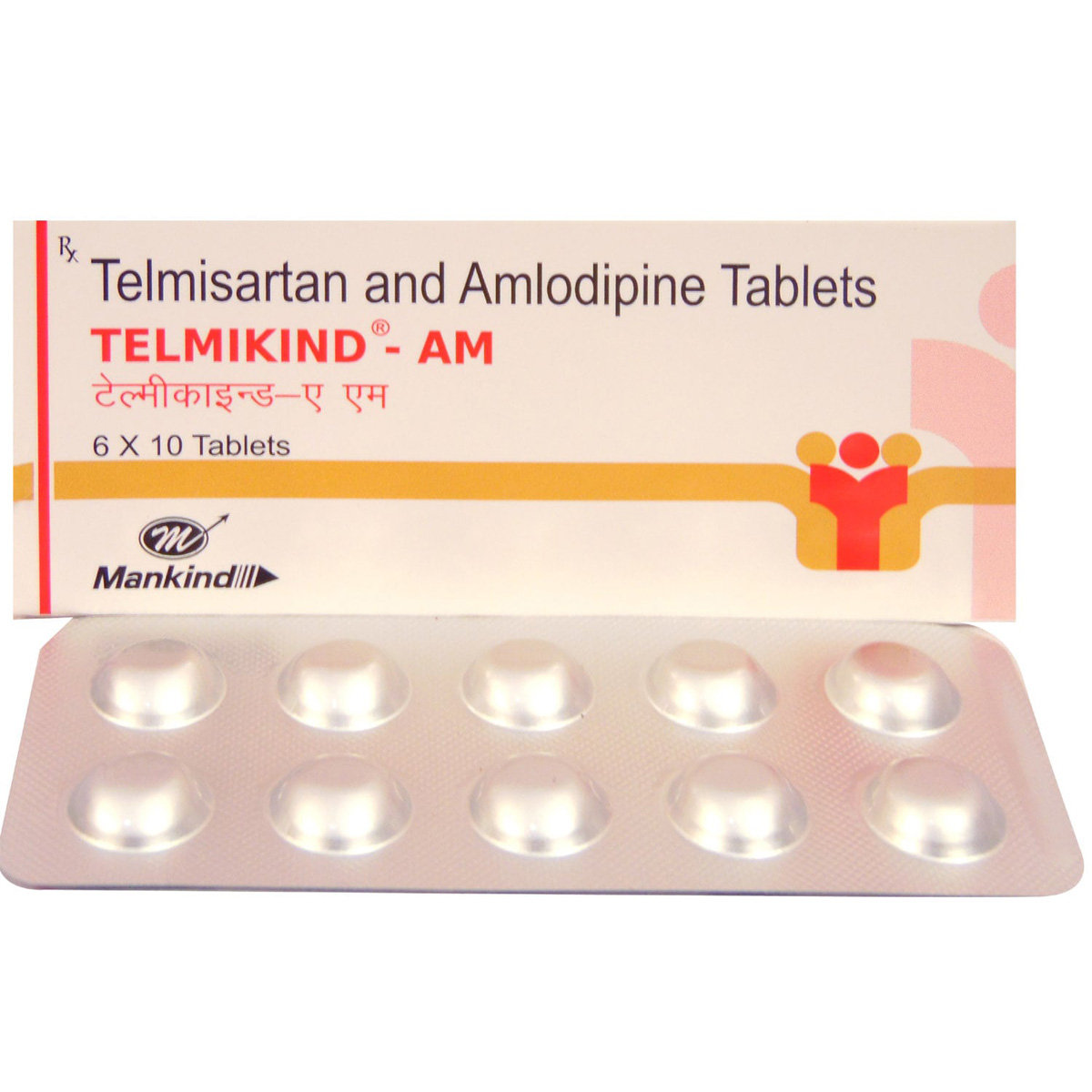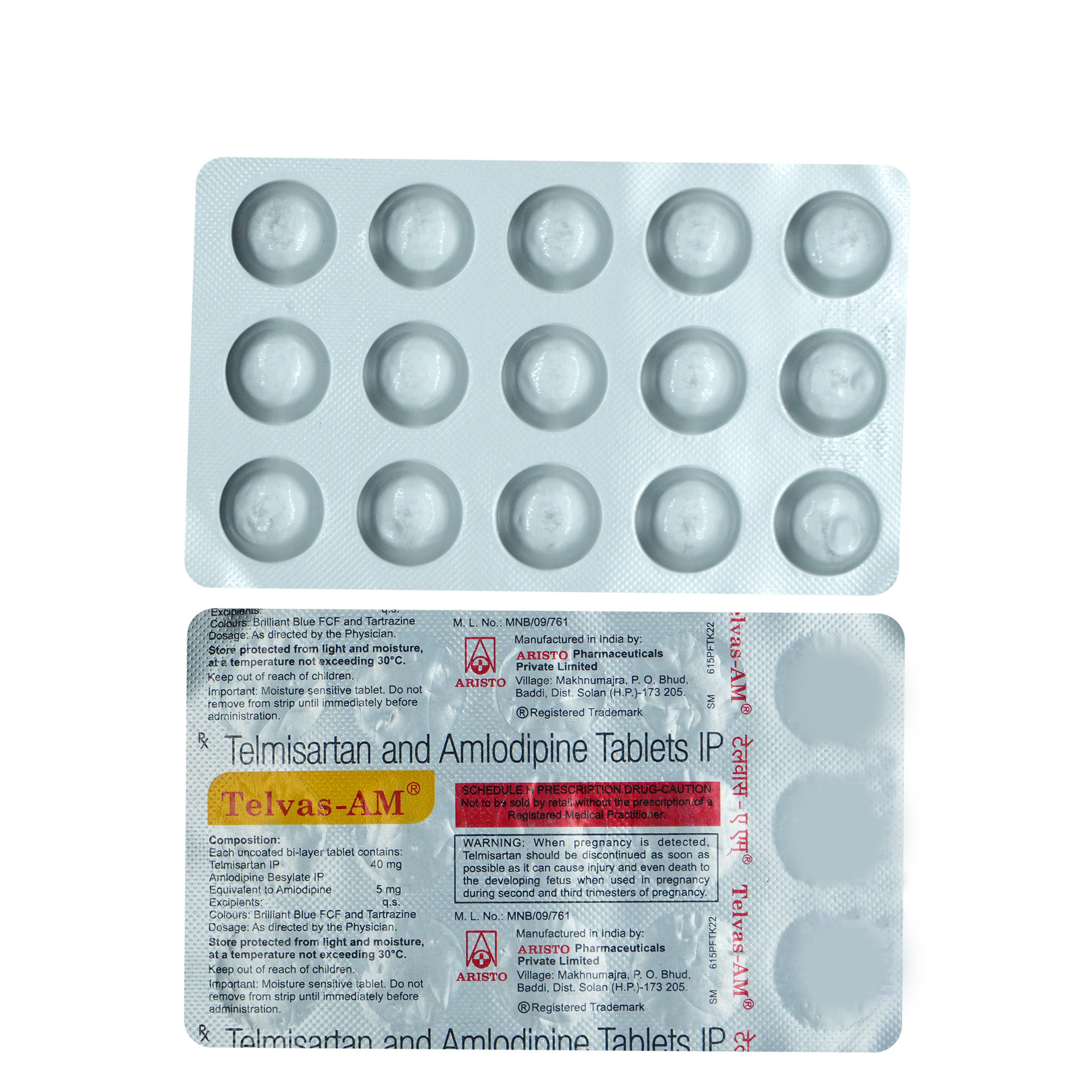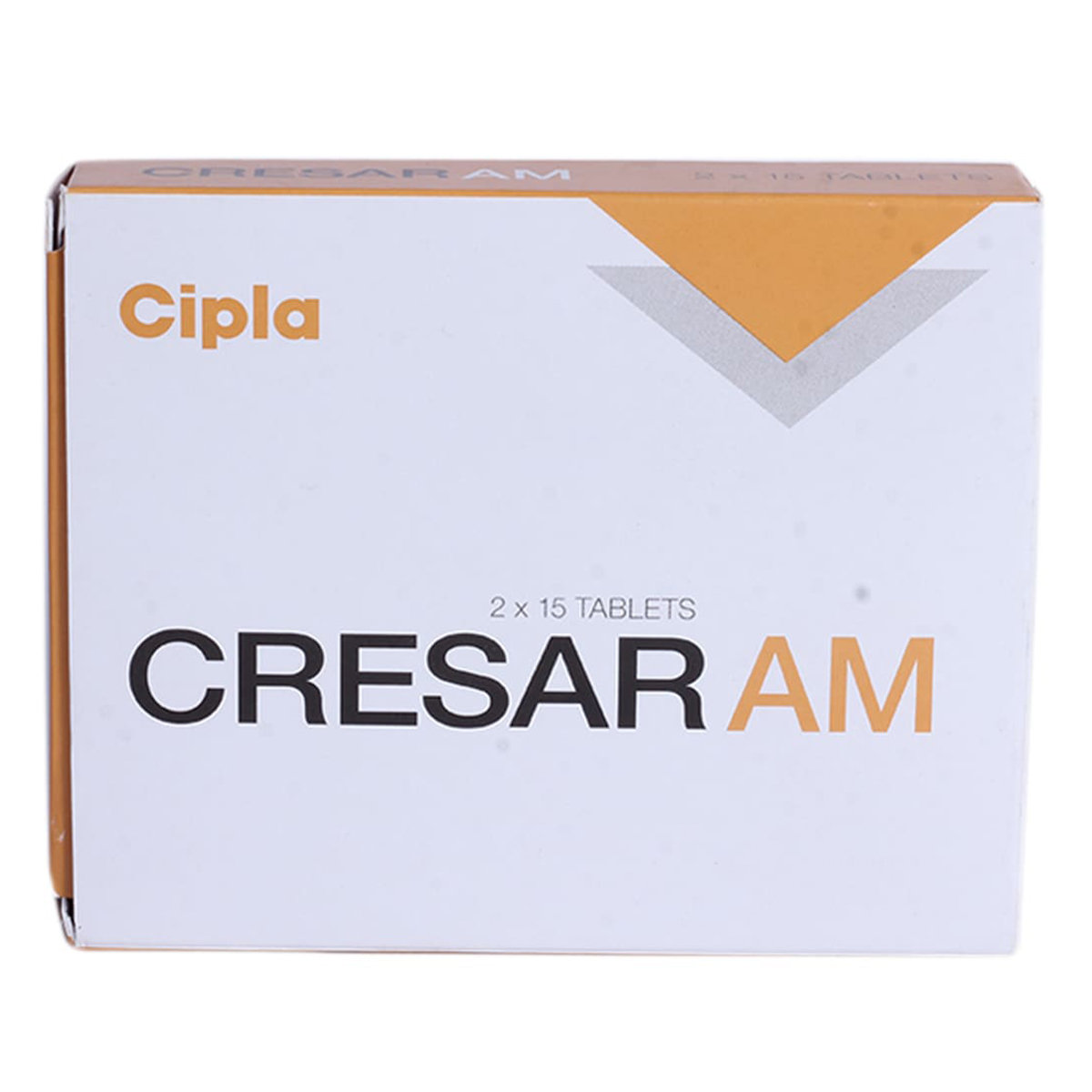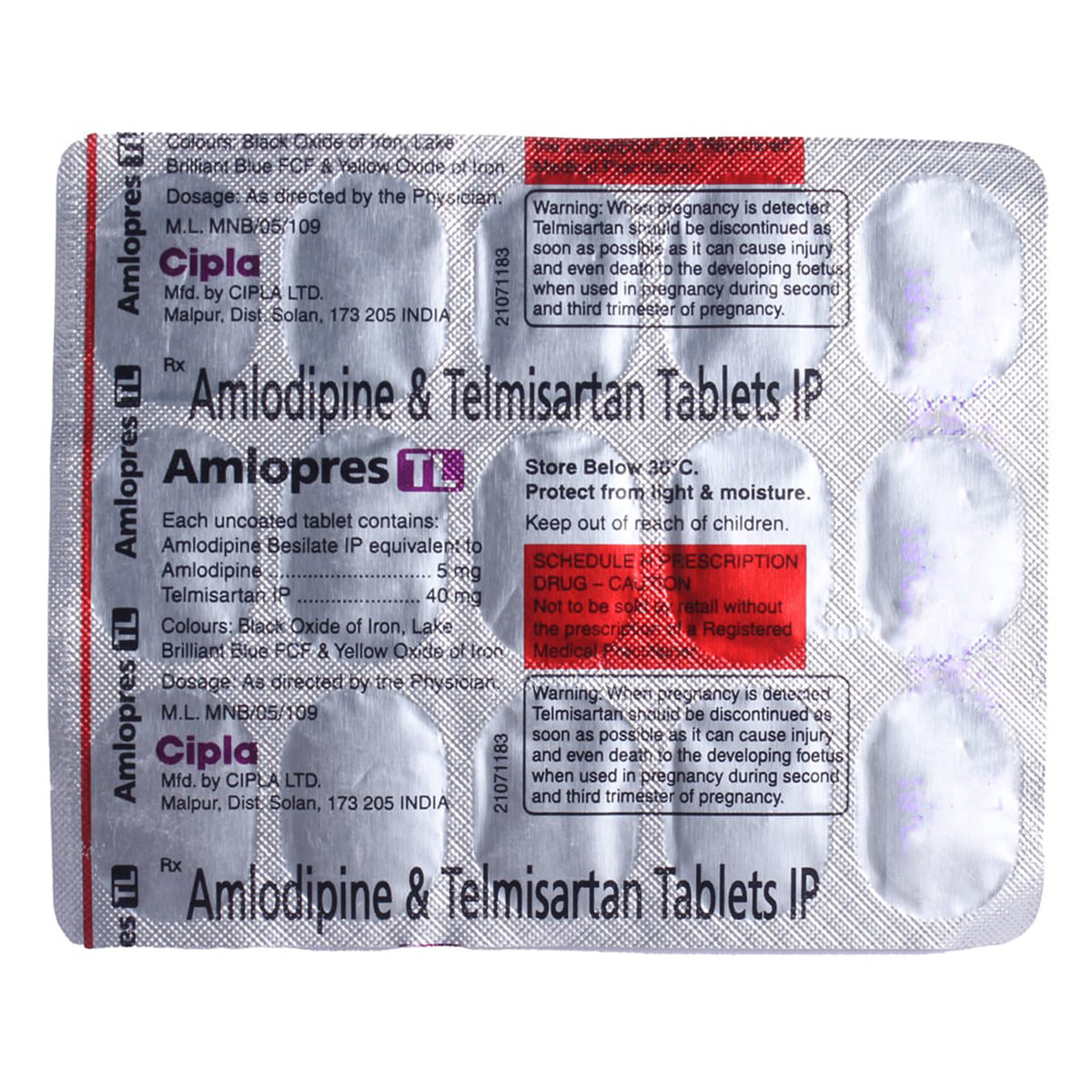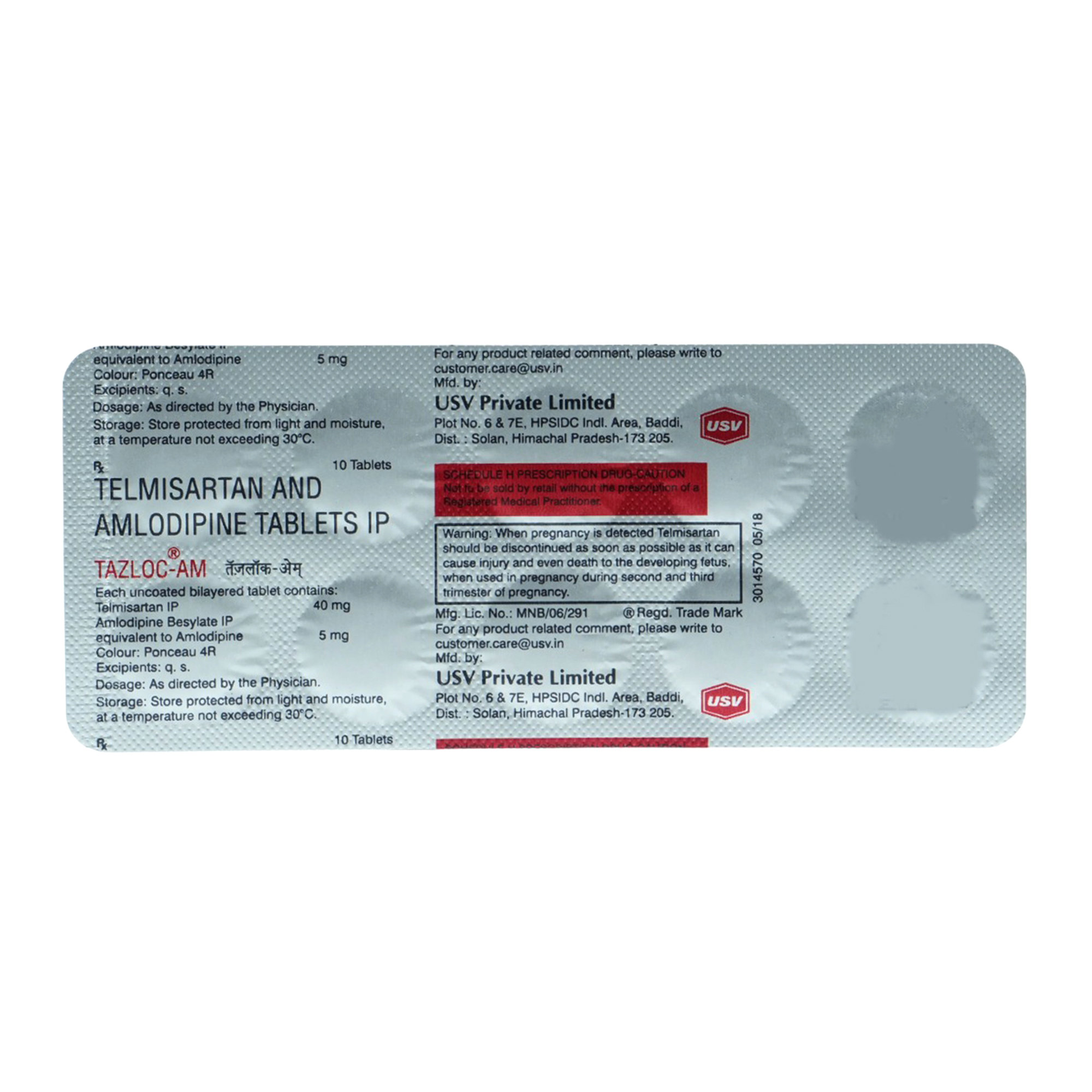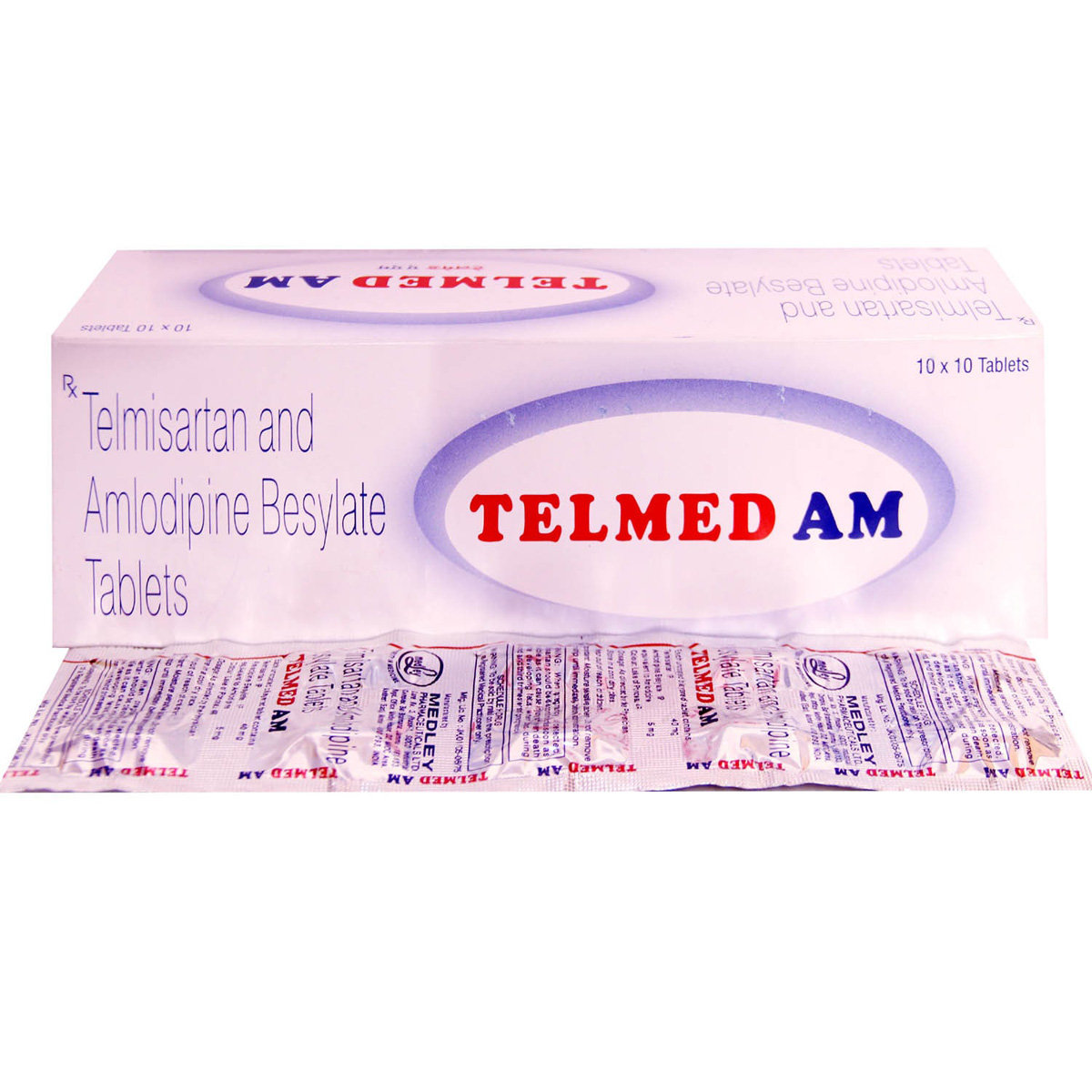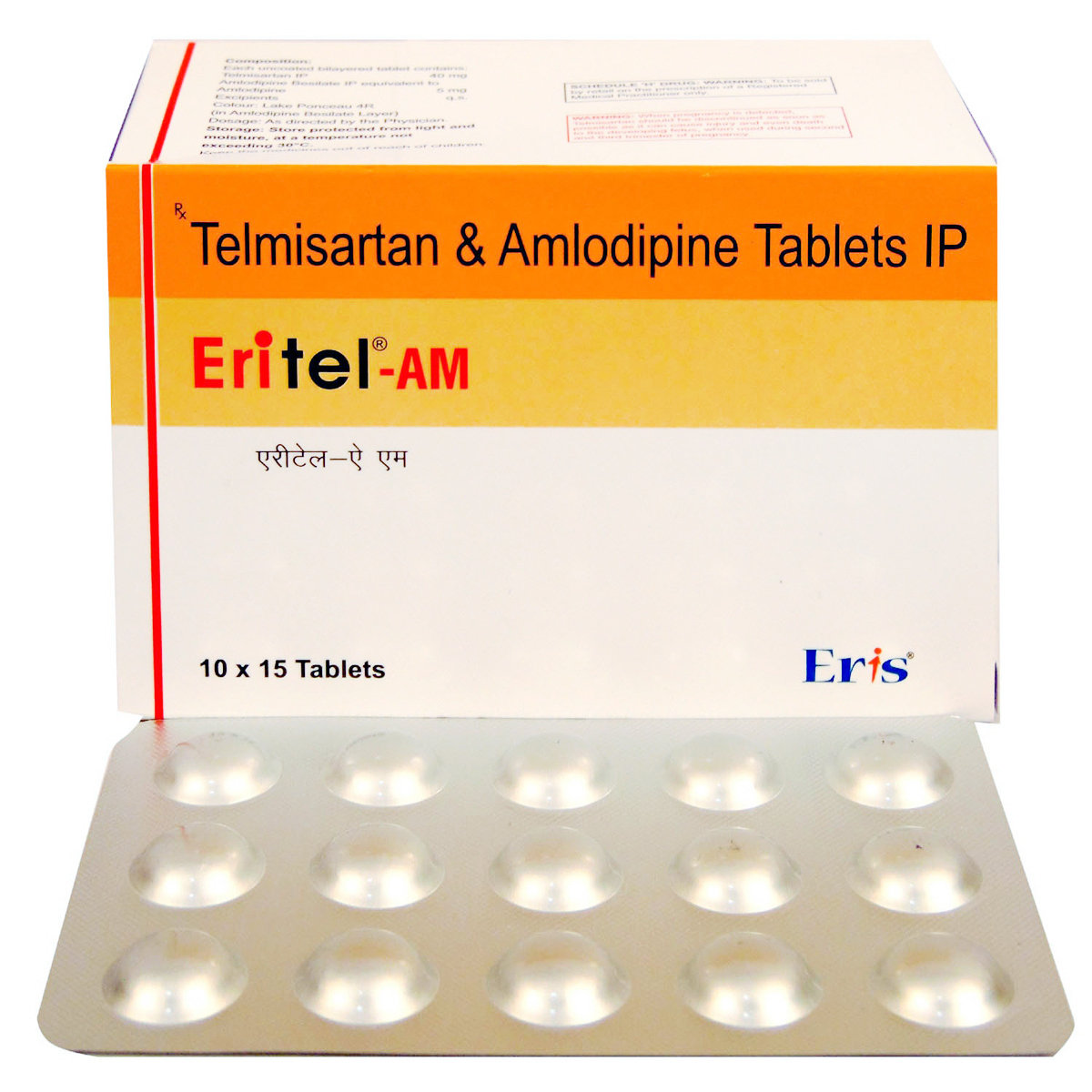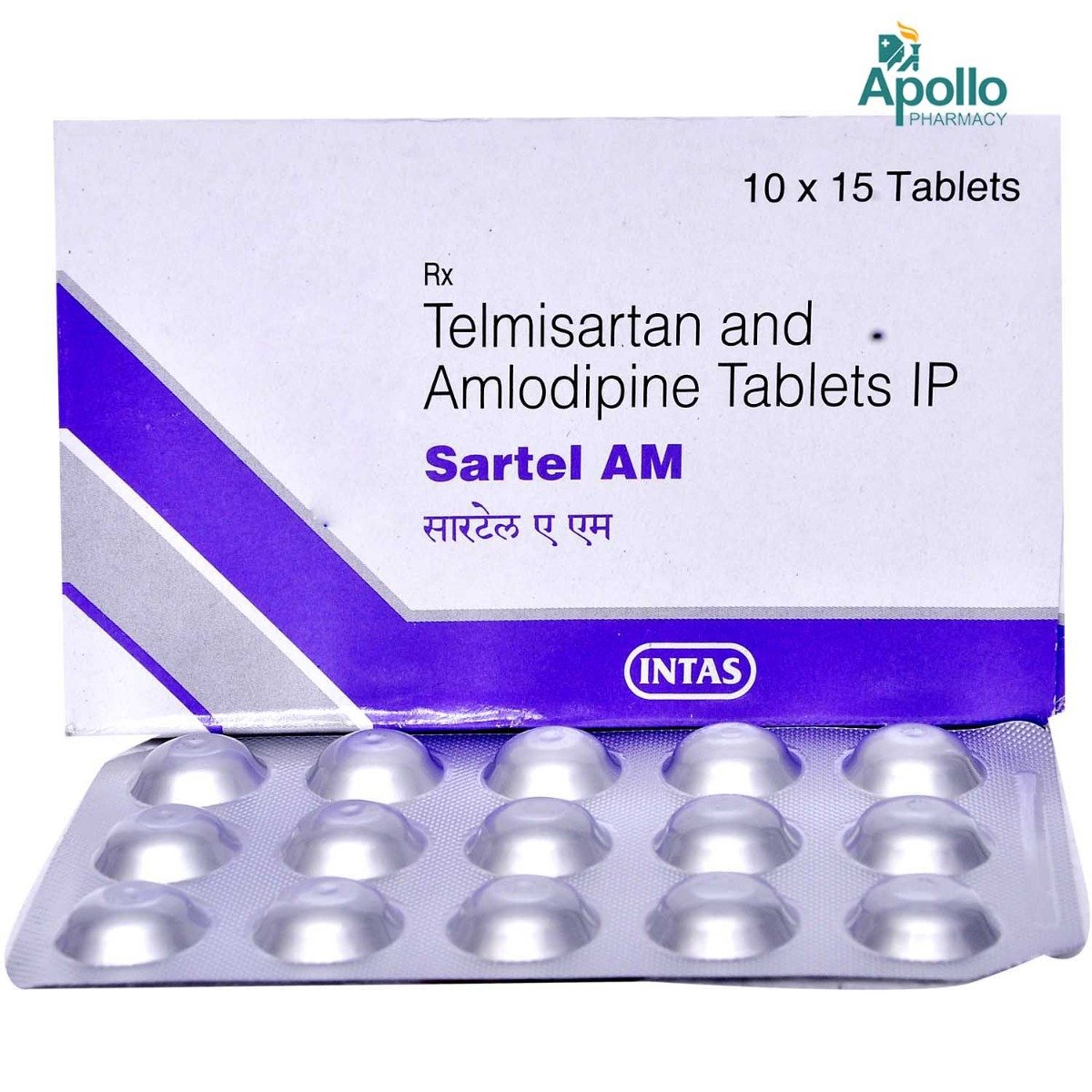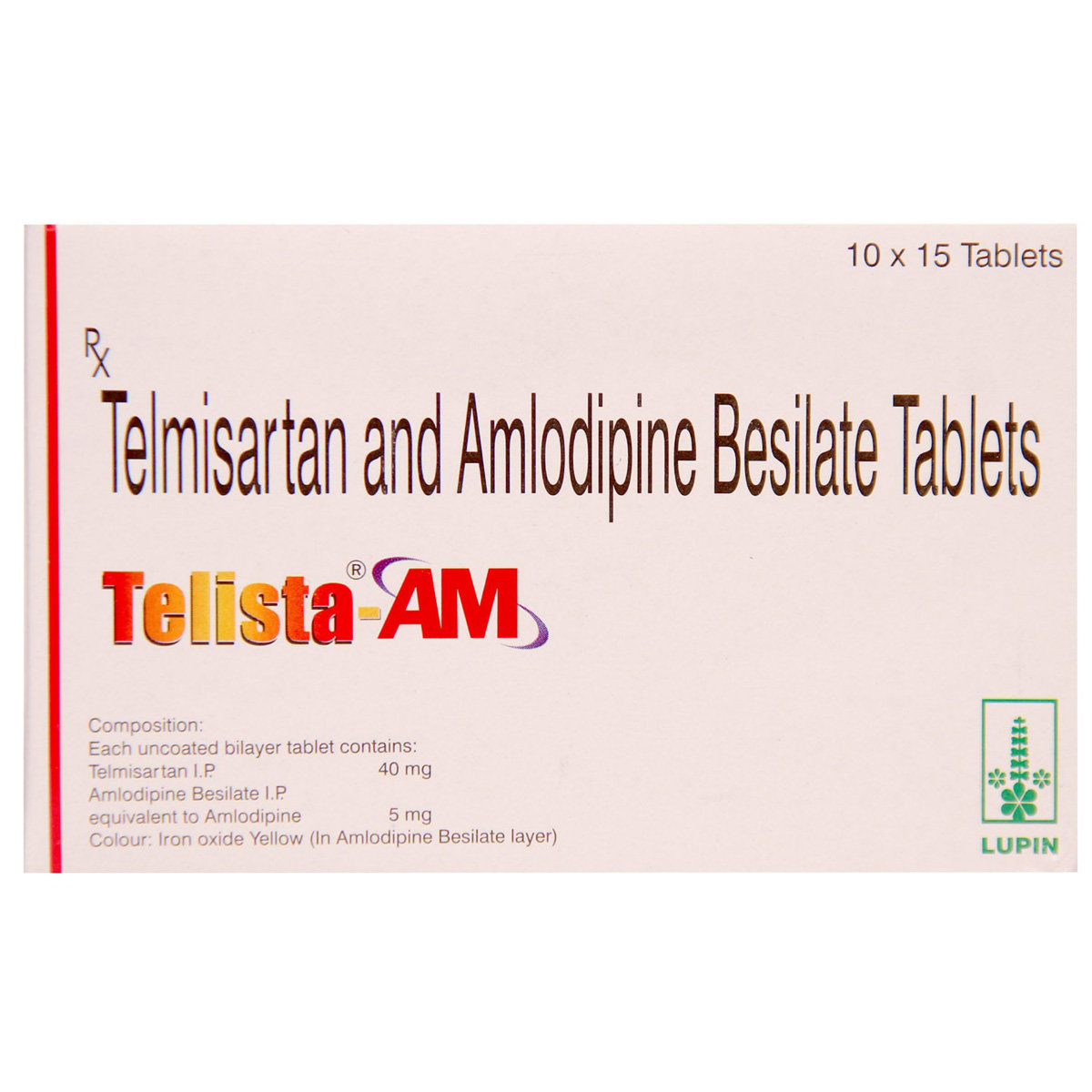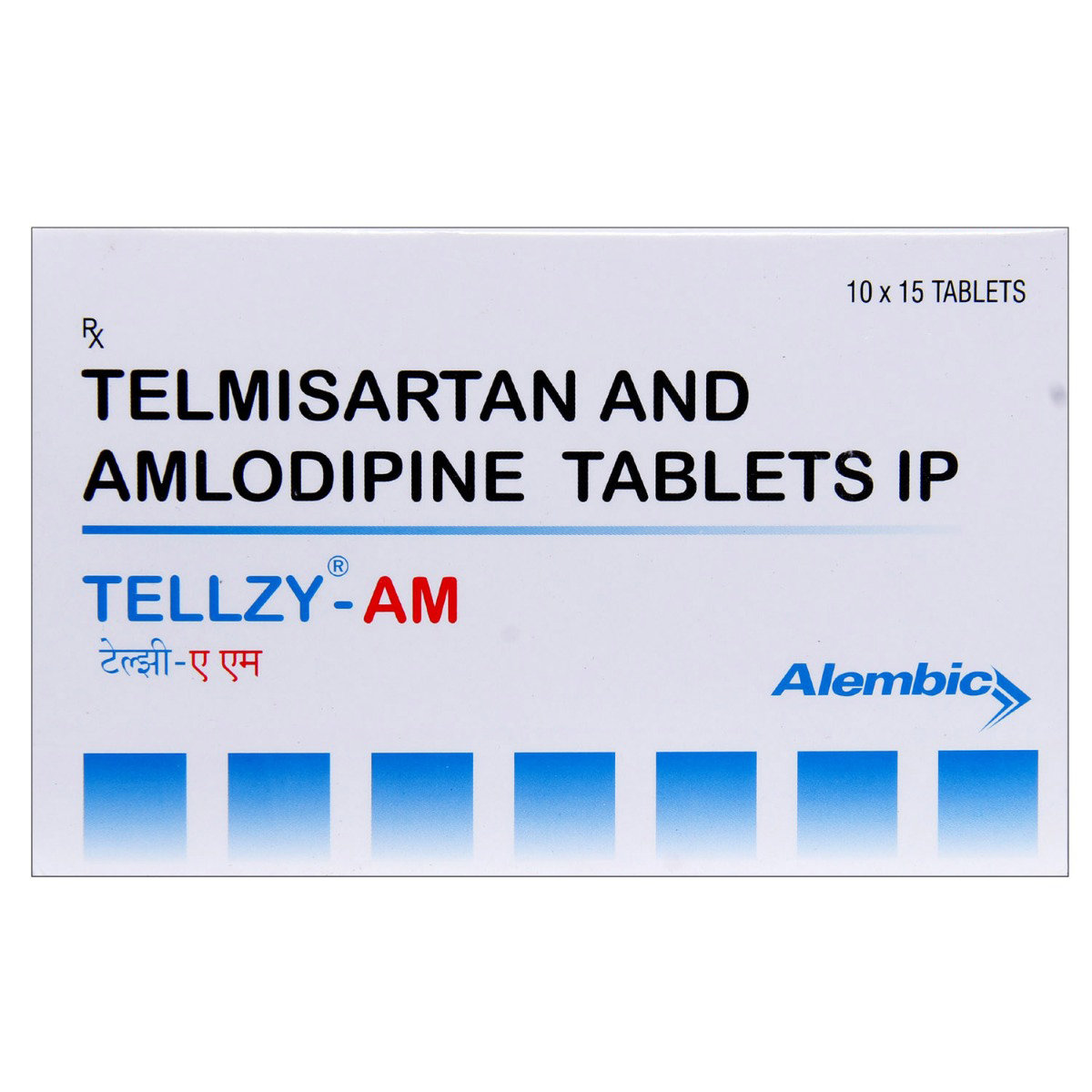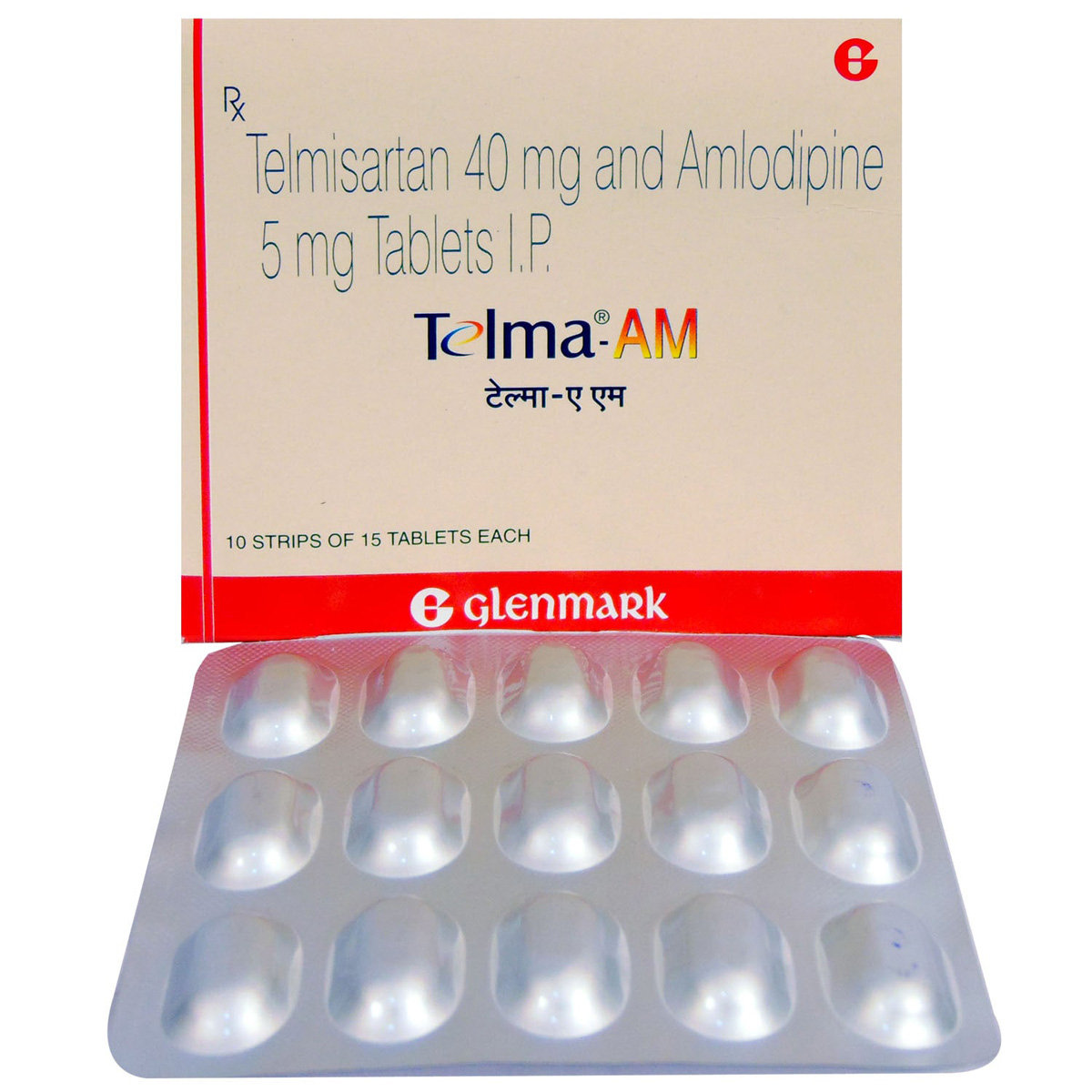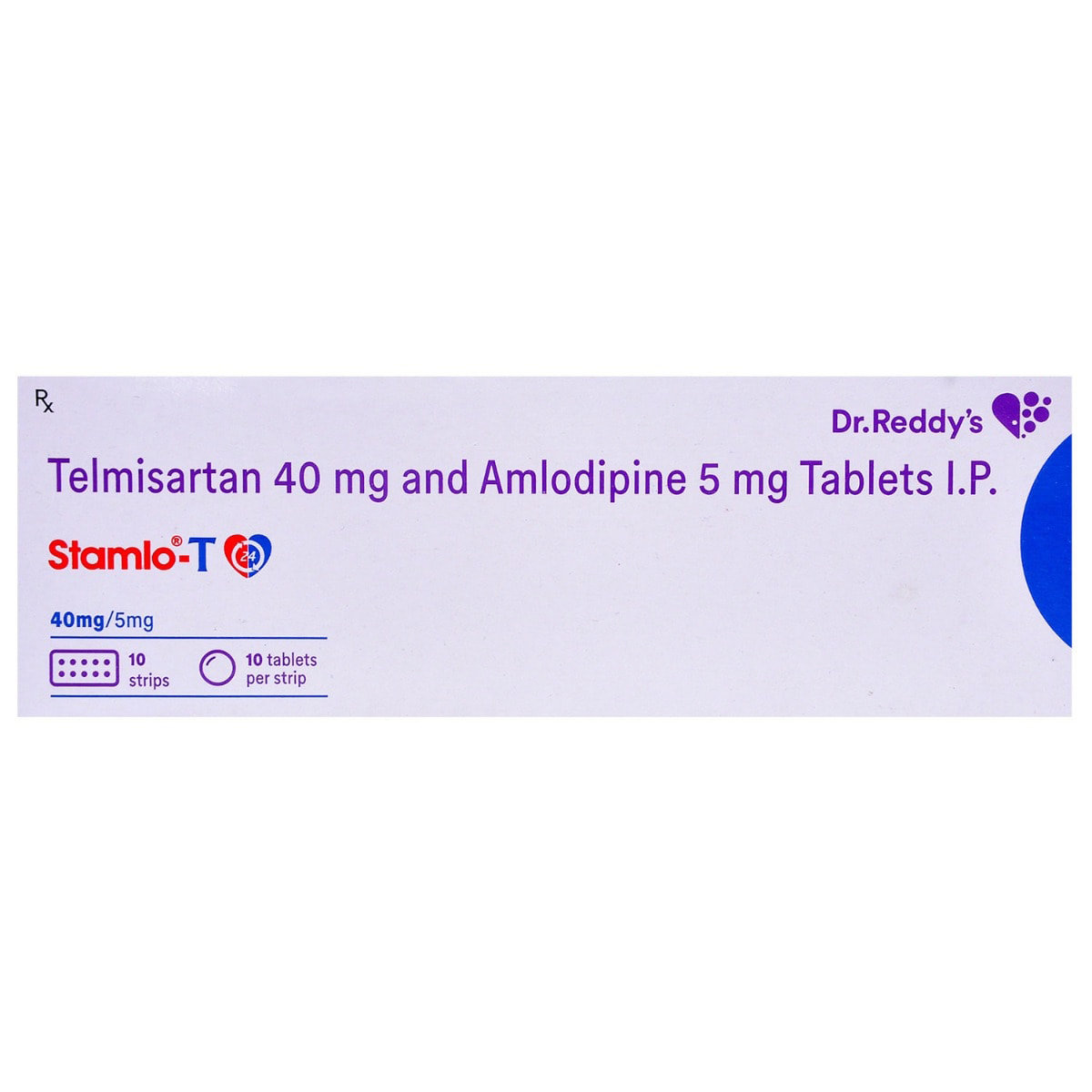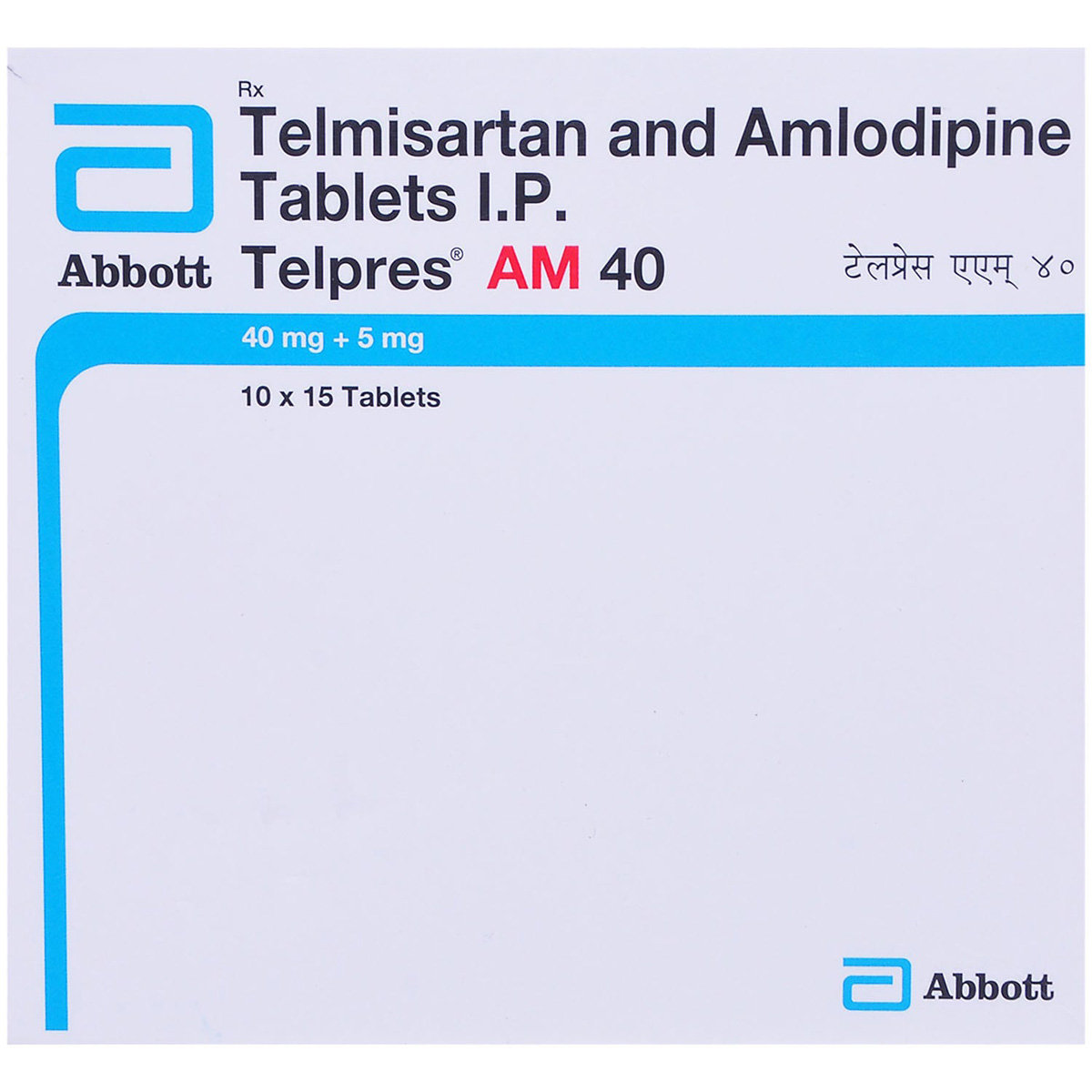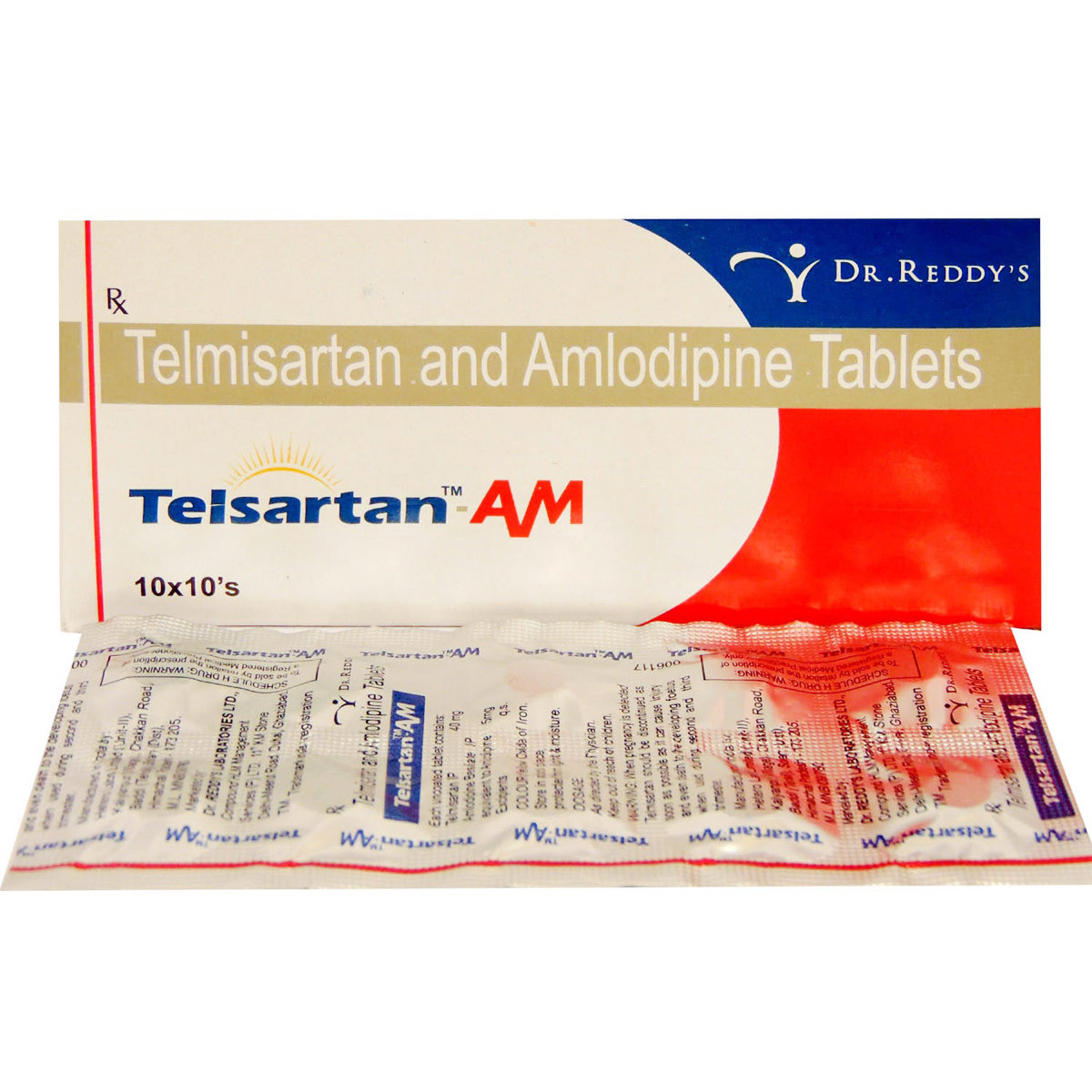Telzat AM 40 Tablet 10's
MRP ₹72
(Inclusive of all Taxes)
₹10.8 Cashback (15%)
Selected Pack Size:10
10 ₹64.8
(₹6.48 per unit)
Out of stock
15 ₹101.25
(₹6.75 per unit)
Out of stock
Provide Delivery Location
Online payment accepted
 Prescription drug
Prescription drugWhats That
Composition :
Manufacturer/Marketer :
Consume Type :
Expires on or after :
Return Policy :
About Telzat AM 40 Tablet
Telzat AM 40 Tablet belongs to the class of anti-hypertensive drugs, primarily used to treat high blood pressure (hypertension). Hypertension is a medical condition in which blood pressure is elevated persistently in the arteries. It is considered an essential risk factor for cardiovascular diseases. Telzat AM 40 Tablet lowers the blood pressure by widening and relaxing blood vessels.
Telzat AM 40 Tablet is a fixed-dose combination composed of two medicines, namely, Telmisartan and Amlodipine. Telmisartan belongs to a group of drugs called angiotensin II receptor antagonists. It lowers blood pressure and increases blood flow by preventing the narrowing of blood vessels. It is used to lower the chances of stroke, heart attack, and death. Amlodipine is a calcium channel blocker that dilates (widens) blood vessels and increases blood flow. Altogether, it helps to lower high blood pressure, chest pain (angina), and other conditions caused by coronary artery disease.
Telzat AM 40 Tablet is available in the form of oral tablets. Swallow it as a whole with a glass of water. You can take Telzat AM 40 Tablet with or without food once a time in a day, as prescribed by the doctor. Do not crush, chew, or break it. Your doctor will decide the dosage based on your medical condition. In some cases, Telzat AM 40 Tablet can cause side effects primarily peripheral oedema (swelling in legs and arms), a common cold, backache, diarrhoea, dizziness, drowsiness, confusion, rashes, and weakness. Most of these side effects of Telzat AM 40 Tablet do not require medical attention and gradually resolve over time. However, if these side effects persist longer, please consult your doctor.
If you are known to be allergic to Telzat AM 40 Tablet or any other medicines, please inform your doctor. Before taking Telzat AM 40 Tablet , let your doctor know if you have hypersensitivity like anaphylaxis (an allergic reaction which includes rashes, low pulse, and shock) or angioedema (swelling under the skin mostly swelling occurs in the face, tongue, abdomen, legs and arms). Pregnant or breastfeeding women should discontinue this Telzat AM 40 Tablet because it can cause injury and death to the developing fetus. Please do not stop taking Telzat AM 40 Tablet on your own, as it may lead to the recurrence of symptoms or worsen the condition. Do not consume alcohol with Telzat AM 40 Tablet as it may increase the risk of low blood pressure. Avoid potassium supplements with Telzat AM 40 Tablet as it may lead to high potassium levels in the blood.
Uses of Telzat AM 40 Tablet
Directions for Use
Key Benefits
Telzat AM 40 Tablet is an anti-hypertensive drug that treats high blood pressure (hypertension). Telzat AM 40 Tablet lowers blood pressure by widening and relaxing blood vessels. Telzat AM 40 Tablet consists of two medicines, namely: Telmisartan and Amlodipine. Telmisartan belongs to a group of drugs called angiotensin II receptor antagonists. It lowers blood pressure and increases blood flow by preventing the narrowing of blood vessels. It reduces the chances of stroke, heart attack, and death. Amlodipine is a calcium channel blocker that dilates (widens) blood vessels and increases blood flow. Altogether, it helps to lower high blood pressure, chest pain (angina), and other conditions caused by coronary artery disease.
Storage
- Inform your doctor about the symptoms you're experiencing due to medication.
- Your doctor may adjust your treatment plan, which could include changing your medication, adding new medications, or offering advice on managing your symptoms.
- Practice good hygiene, including frequent handwashing, avoiding close contact with others, and avoiding sharing utensils or personal items.
- Stay hydrated by drinking plenty of fluids to help loosen and clear mucus from your nose, throat, and airways.
- Get plenty of rest and engage in stress-reducing activities to help your body recover. If your symptoms don't subside or worsen, consult your doctor for further guidance.
- Talk to your doctor about your back pain and potential medication substitutes or dose changes.
- Try yoga or Pilates and other mild stretching exercises to increase flexibility and strengthen your back muscles.
- To lessen the tension on your back, sit and stand upright and maintain proper posture.
- To alleviate discomfort and minimize inflammation, apply heat or cold packs to the afflicted area.
- Under your doctor's supervision, think about taking over-the-counter painkillers like acetaminophen or ibuprofen.
- Make ergonomic adjustments to your workspace and daily activities to reduce strain on your back.
- To handle tension that could make back pain worse, try stress-reduction methods like deep breathing or meditation.
- Use pillows and a supportive mattress to keep your spine in the right posture as you sleep.
- Back discomfort can worsen by bending, twisting, and heavy lifting.
- Speak with a physical therapist to create a customized training regimen to increase back strength and flexibility.
- Inform Your Doctor: Notify your doctor immediately about your diarrhoea symptoms. This allows them to adjust your medication or provide guidance on managing side effects.
- Stay Hydrated: Drink plenty of fluids to replace lost water and electrolytes. Choose water, clear broth, and electrolyte-rich drinks. Avoid carbonated or caffeinated beverages to effectively rehydrate your body.
- Follow a Bland Diet: Eat easy-to-digest foods to help firm up your stool and settle your stomach. Try incorporating bananas, rice, applesauce, toast, plain crackers, and boiled vegetables into your diet.
- Avoid Trigger Foods: Steer clear of foods that can worsen diarrhoea, such as spicy, fatty, or greasy foods, high-fibre foods, and dairy products (especially if you're lactose intolerant).
- Practice Good Hygiene: Maintain good hygiene to prevent the spread of infection. To stay healthy, wash your hands frequently, clean and disinfect surfaces regularly, and avoid exchanging personal belongings with others.
- Take Anti-Diarrheal Medications: If your doctor advises, anti-diarrheal medications such as loperamide might help manage diarrhoea symptoms. Always follow your doctor's directions.
- Keep track of your diarrhoea symptoms. If they don't get better or worse or are accompanied by severe stomach pain, blood, or dehydration signs (like extreme thirst or dark urine), seek medical help.
- Report to Your Doctor: Inform your doctor about the muscle pain, as they may need to adjust your medication.
- Stretch Regularly: Gentle stretching can help relieve muscle pain and stiffness.
- Stay Hydrated: Adequate water intake supports muscle health by removing harmful substances and maintaining proper muscle function.
- Warm or Cold Compresses: Apply cold or warm compresses to the affected area to reduce pain and inflammation.
- Rest and Relaxation: Adequate rest helps alleviate muscle strain, while relaxation techniques like deep breathing and meditation can soothe muscle tightness, calm the mind, and promote relief from discomfort.
- Gentle Exercise: Participate in low-impact activities, such as yoga or short walks, to improve flexibility, reduce muscle tension, and alleviate discomfort.
- Consult a physician: If your symptoms don't improve or get worse, go to the doctor for help and guidance.
- Consult your doctor if you experience symptoms of sinusitis, such as nasal congestion, facial pain, or headaches, which may be triggered by your medication.
- Your doctor may adjust your treatment plan by changing your medication, adding new medications, or providing guidance on managing your sinusitis symptoms.
- Practice good hygiene, including frequent handwashing, avoiding close contact with others, and avoiding sharing utensils or personal items.
- If your doctor advises, you can use nasal decongestants or saline nasal sprays to help relieve nasal congestion and sinus pressure.
- To help your body recover, get plenty of rest, stay hydrated, and engage in stress-reducing activities. If your symptoms persist or worsen, consult your doctor for further guidance.
- Chest pain may last for a while and needs immediate medical attention as it is a significant health issue to be attended to.
- Take rest and refrain from doing physical activity for a while, and restart after a few days.
- Try applying an ice pack to the strained area for at least 20 minutes thrice a day. Ice pack thus helps reduce inflammation.
- Sit upright and maintain proper posture if there is persistent chest pain. • Use extra pillows to elevate your position and prop your chest up while sleeping.
- Hydrate your body: Drink enough water to prevent dehydration and headaches.
- Calm Your Mind: Deep breathing and meditation can help you relax and relieve stress.
- Rest and Recharge: Sleep for 7-8 hours to reduce headache triggers.
- Take rest: lie down in a quiet, dark environment.
- Cold or warm compresses can help reduce tension.
- Stay Upright: Maintain good posture to keep symptoms from getting worse.
- To treat headaches naturally, try acupuncture or massage therapy.
- Over-the-counter pain relievers include acetaminophen and ibuprofen.
- Prescription Assistance: Speak with your doctor about more substantial drug alternatives.
- Severe Headaches: Seek emergency medical assistance for sudden, severe headaches.
- Frequent Headaches: If you get reoccurring headaches, consult your doctor.
- Headaches with Symptoms: Seek medical attention if your headaches include fever, disorientation, or weakness.
Drug Warnings
Monitor your blood pressure levels regularly. If you are known to be allergic to Telzat AM 40 Tablet or have any kidney or liver problems or severe dehydration, please inform your doctor beforehand. Pregnant or breastfeeding women should also consult their doctor before taking it. It is advised to complete the prescribed course, even if you feel better. Complete the course strictly as suggested by the doctor, even if you feel better, to avoid disease recurrence. Avoid consumption of alcohol with Telzat AM 40 Tablet as it may increase the risk of low blood pressure. Avoid potassium supplements with Telzat AM 40 Tablet as they may lead to high potassium levels in the blood.
Drug-Drug Interactions
Drug-Drug Interactions
Login/Sign Up
Co-administration of Aliskiren with Telzat AM 40 Tablet can increase the risk of hyperkalemia (high potassium levels in the blood).
How to manage the interaction:
Taking Telzat AM 40 Tablet with Aliskiren can possibly lead to an interaction, please consult a doctor before taking it. Do not discontinue the medications without consulting a doctor.
Taking Cisapride and Telzat AM 40 Tablet can increase the risk of an irregular heart rhythm which can be severe. The risk increases in patients with a history of heart illness or electrolyte imbalance.
How to manage the interaction:
Combining Cisapride and Telzat AM 40 Tablet together is generally avoided as it can possibly result in an interaction, it can be taken if advised by your doctor. However, if you experience any symptoms like dizziness, lightheadedness, fainting, or fast or pounding heartbeats, consult the doctor immediately. Do not stop using any medications without a doctor's advice.
Taking Dofetilide and Telzat AM 40 Tablet can increase the risk of an irregular heart rhythm which can be severe. The risk increases in patients with a history of heart illness or electrolyte imbalance.
How to manage the interaction:
Combining Dofetilide and Telzat AM 40 Tablet together is not recommended as it can possibly result in an interaction, it can be taken if advised by your doctor. However, if you experience any symptoms like sudden dizziness, lightheadedness, fainting, shortness of breath, chest pain or tightness, rapid heartbeat, or memory loss, contact your doctor immediately. Do not discontinue any medications without consulting a doctor.
Co-administration of Telzat AM 40 Tablet may significantly increase the blood levels of lithium.
How to manage the interaction:
Although there is a possible interaction, Telzat AM 40 Tablet can be taken with lithium if prescribed by the doctor. Consult the prescriber if you experience symptoms of lithium intoxication such as drowsiness, dizziness, confusion, loose stools, vomiting, muscle weakness, muscle incoordination, shaking of hands and legs, blurred vision, ringing in the ear, excessive thirst, or increased urination. Do not discontinue the medication without consulting a doctor.
Co-administration of Potassium acetate can make Telzat AM 40 Tablet more likely to cause high levels of potassium in the blood.
How to manage the interaction:
Although taking Potassium acetate and Telzat AM 40 Tablet together can evidently cause an interaction, it can be taken if your doctor has suggested it. Do not stop using any medications without a doctor's advice.
Taking ramipril with Telzat AM 40 Tablet may increase the risk of side effects such as low blood pressure, kidney function impairment, and high blood potassium.
How to manage the interaction:
Although there is a possible interaction, Telzat AM 40 Tablet can be taken with ramipril if prescribed by the doctor. Consult the prescriber if you experience symptoms of high potassium such as nausea, vomiting, weakness, confusion, tingling of the hands and feet, feelings of heaviness in the legs, a weak pulse, or a slow or irregular heartbeat. Maintain adequate fluid intake during treatment with these medications. Do not discontinue the medications without consulting a doctor.
Taking Potassium citrate with Telzat AM 40 Tablet together may increase potassium levels in the blood, which can lead to kidney failure, muscular paralysis, and abnormal heart rhythm.
How to manage the interaction:
Although taking Potassium citrate with Telzat AM 40 Tablet together can possibly result in an interaction, it can be taken if a doctor has advised it. However, consult the doctor if you experience nausea, vomiting, weakness, disorientation, tingling in your hands and feet, feelings of heaviness in your legs, a weak pulse, or a slow or irregular heartbeat. It is essential to maintain proper fluid intake while taking these medications. It is advised to reduce the intake of potassium-rich foods. Do not discontinue any medications without a doctor's advice.
Taking Potassium Iodide with Telzat AM 40 Tablet can make high levels of potassium in the blood more likely.
How to manage the interaction:
Although taking Potassium iodide and Telzat AM 40 Tablet together can evidently cause an interaction, it can be taken if your doctor has suggested it. Do not stop using any medications without a doctor's advice.
Taking lisinopril with Telzat AM 40 Tablet may increase the levels of potassium in blood.
How to manage the interaction:
Although there is a possible interaction, Telzat AM 40 Tablet can be taken with lisinopril if prescribed by the doctor. Consult the prescriber if you experience symptoms of high potassium such as nausea, vomiting, weakness, confusion, tingling of the hands and feet, feelings of heaviness in the legs, a weak pulse, or a slow or irregular heartbeat. Maintain adequate fluid intake during treatment with these medications.
Taking spironolactone with Telzat AM 40 Tablet may increase potassium levels in the blood.
How to manage the interaction:
Although there is a possible interaction, Telzat AM 40 Tablet can be taken with spironolactone if prescribed by the doctor. Consult the prescriber if you experience symptoms of high potassium such as nausea, vomiting, weakness, confusion, tingling of the hands and feet, feelings of heaviness in the legs, a weak pulse, or a slow or irregular heartbeat. Maintain adequate fluid intake during treatment with these medications. Do not discontinue the medications without consulting a doctor.
Drug-Food Interactions
Drug-Food Interactions
Login/Sign Up
Lentils, Orange Juice, Oranges, Raisins, Potatoes, Salmon Dried, Spinach, Sweet Potatoes, Tomatoes, Coconut Water, Beans, Beetroot, Broccoli, Bananas, Apricots, Avocado, Yogurt
How to manage the interaction:
Consumption of Telzat AM 40 Tablet with potassium-containing salt substitutes may increase the levels of potassium in the body. Avoid potassium-containing salt substitutes while being treated with Telzat AM 40 Tablet. Consult a doctor if you experience weakness, irregular heartbeat, confusion, tingling of the extremities, or feelings of heaviness in the legs.
Diet & Lifestyle Advise
- Create a well-balanced and healthy diet that includes vegetables, fruits, whole grains, legumes, omega-3-rich foods, and lean protein sources.
- Keep your weight under control with a BMI of 19.5-24.9.
- Avoid chronic stress, as it can raise your blood pressure.
- Spend time with your loved ones to cope with stress and practice mindfulness techniques.
- Be mindful of salt; consume no more than 2,300 mg each day.
- Limit or avoid alcohol consumption.
- Quitting smoking is the best strategy to lower the risk of heart disease.
Side Effects of Telzat AM 40 Tablet
- Peripheral oedema (swelling in legs and arms)
- Common cold
- Backache
- Diarrhoea
- Dizziness
- Drowsiness
- Confusion
- Rashes
- Weakness
Habit Forming
Therapeutic Class
All Substitutes & Brand Comparisons
RX
Telmikind-AM Tablet 10's
Mankind Pharma Pvt Ltd
₹78
(₹7.02 per unit)
8% COSTLIERRX
Telvas-AM Tablet 15's
Aristo Pharmaceuticals Pvt Ltd
₹135.5
(₹8.13 per unit)
25% COSTLIERRX
Cresar AM Tablet 15's
Cipla Ltd
₹138
(₹8.28 per unit)
27% COSTLIER
Drug-Diseases Interactions
Drug-Diseases Interactions
Login/Sign Up
FAQs
Telzat AM 40 Tablet is a combination of two medicines: Telmisartan and Amlodipine. Telmisartan is an angiotensin receptor blocker (ARB), and Amlodipine is a calcium channel blocker (CCB). They work by relaxing the blood vessels and making the heart more efficient at pumping blood throughout the body. Together, they lower blood pressure effectively.
No, because your blood pressure rapidly increases when you suddenly stop this Telzat AM 40 Tablet . This can increase your risk of heart attack and stroke.
Pregnant women should discontinue this Telzat AM 40 Tablet because it can cause injury and death to the developing fetus. So, Telzat AM 40 Tablet is not safe in pregnancy.
There is no evidence on how Telzat AM 40 Tablet affects breastfeeding. Please consult your doctor before taking Telzat AM 40 Tablet if you are breastfeeding.
Do not stop using Telzat AM 40 Tablet even if you feel better. It should be strictly used as advised by your doctor to avoid the recurrence of symptoms and worsening of the disease.
No, Telzat AM 40 Tablet can cause high levels of potassium in the blood leading to hyperkalemia. Hence it is not recommended to use potassium supplements along with Telzat AM 40 Tablet . However, consult your doctor if you are already taking other medicines before starting Telzat AM 40 Tablet .
Yes, the Telzat AM 40 Tablet can make you feel dizzy. Dizziness usually occurs when you suddenly stand up from a lying or sitting position. Try rising slowly when you change your posture to relieve dizziness. If the side effect persists longer, please seek medical help.
Telzat AM 40 Tablet is generally safe to take for a long time. Remember to follow your doctor's advice/instructions.
Drug-Drug Interactions Checker List
- ALISKIREN
- RAMIPRIL
- IBUPROFEN
- NAPROXEN
- SIMVASTATIN
- DIGOXIN
- LITHIUM
- CYCLOSPORINE
- TACROLIMUS
Special Advise
- Keep a check on your daily blood pressure, and if you notice any fluctuations, please consult a doctor. A low salt/sodium diet and regular exercise are recommended along with Telzat AM 40 Tablet for effective results.
Disease/Condition Glossary
Hypertension: The blood exerts increased pressure on the walls of blood vessels leading to hypertension. High blood pressure is expressed as systolic/diastolic pressure. Systolic pressure is the pressure in the arteries when the heart beats or pumps out blood. Diastolic pressure is the pressure in the arteries between the heartbeats. Blood pressure is measured in millimetres of mercury (mmHg) by a blood pressure monitor called a sphygmomanometer. Some of the symptoms are headache, dizziness, nosebleeds, altered vision, chest pain, weakness, and shortness of breath. However, most of the time, the signs and symptoms of hypertension are none.

Have a query?
Alcohol
Safe if prescribed
It is unsafe to consume alcohol since alcohol consumption with Telzat AM 40 Tablet may increase the risk of low blood pressure and cause adverse effects such as dizziness, fainting, light-headedness, or headache.
Pregnancy
Consult your doctor
Pregnant women should discontinue this Telzat AM 40 Tablet because it can cause injury and death to the developing fetus. So, Telzat AM 40 Tablet is not safe in pregnancy.
Breast Feeding
Consult your doctor
There is no evidence on how Telzat AM 40 Tablet affects breastfeeding. So, inform your doctor if you are a nursing mother. Your doctor will weigh the benefits and potential risks before prescribing Telzat AM 40 Tablet .
Driving
Safe if prescribed
Telzat AM 40 Tablet may cause side effects like dizziness, headaches, and nausea, which can affect your ability to concentrate and drive. Hence, it is recommended not to drive until you are mentally alert.
Liver
Consult your doctor
Inform your doctor before receiving the Telzat AM 40 Tablet if you have a history of liver diseases/conditions. Your doctor may adjust your dose depending on your current liver conditions.
Kidney
Consult your doctor
Inform your doctor before receiving the Telzat AM 40 Tablet if you have a history of kidney diseases/conditions. Your doctor may adjust your dose depending on your current kidney conditions.
Children
Safe if prescribed
Telzat AM 40 Tablet is not recommended to use in children. Please consult the doctor if you have any concerns regarding this.




